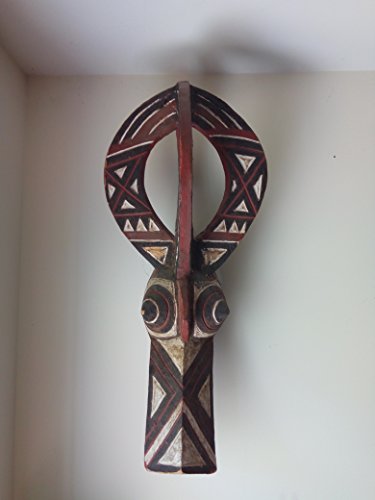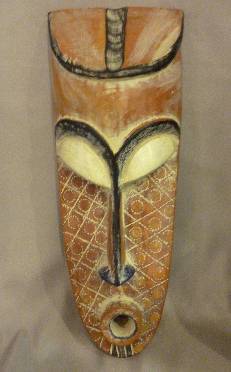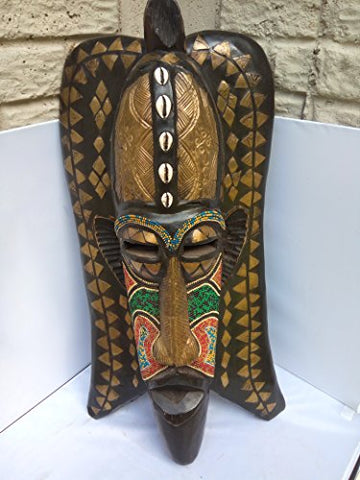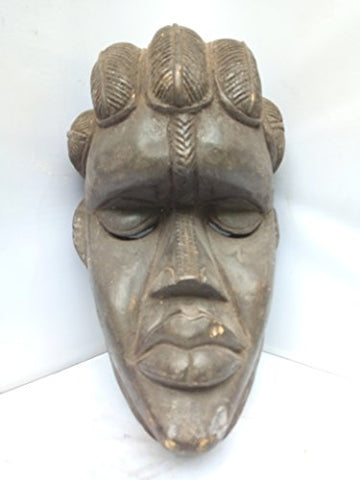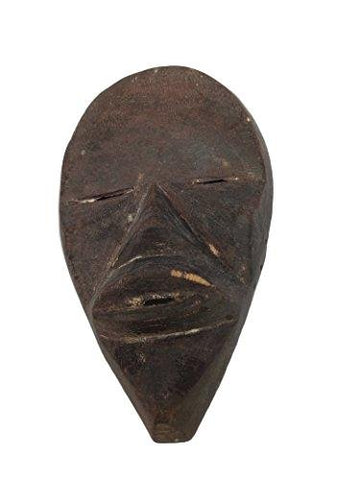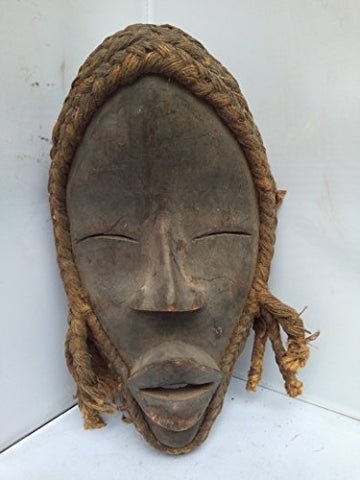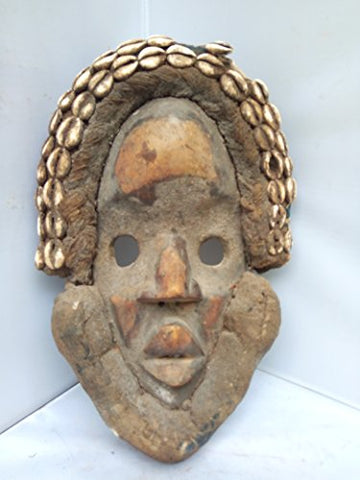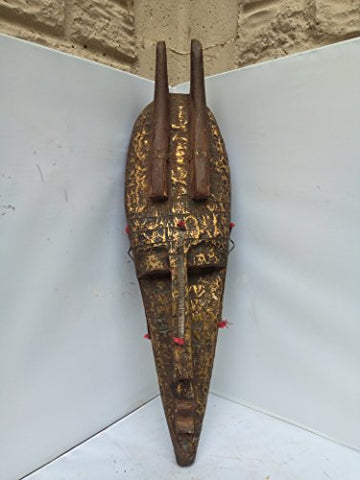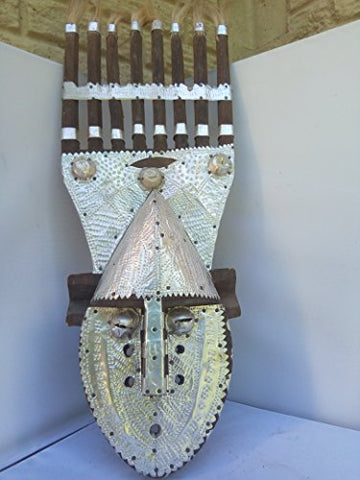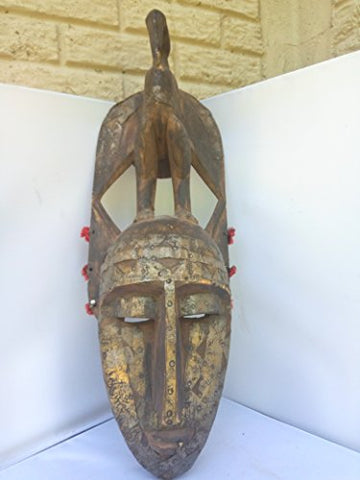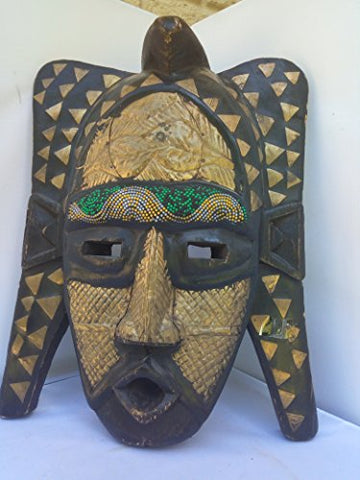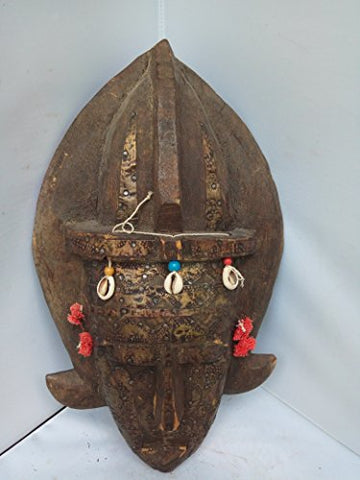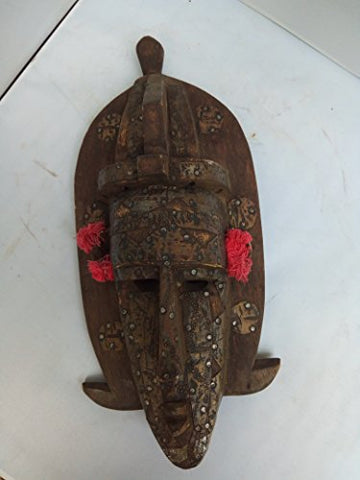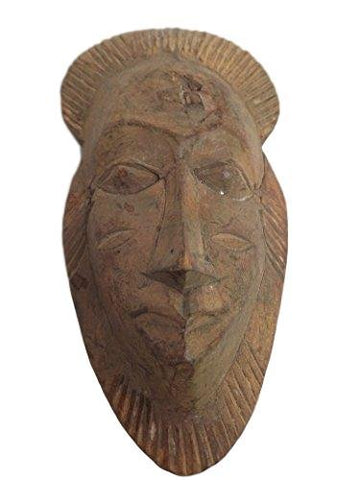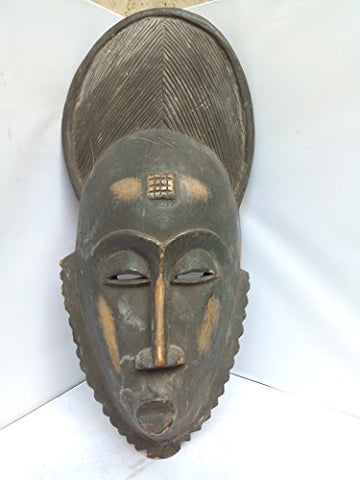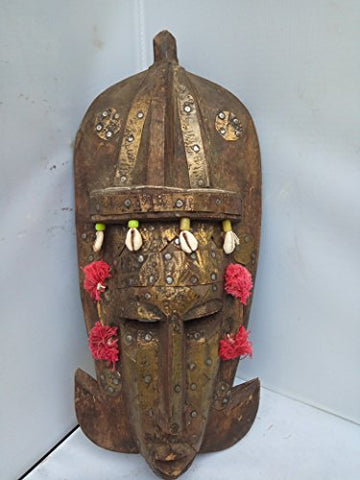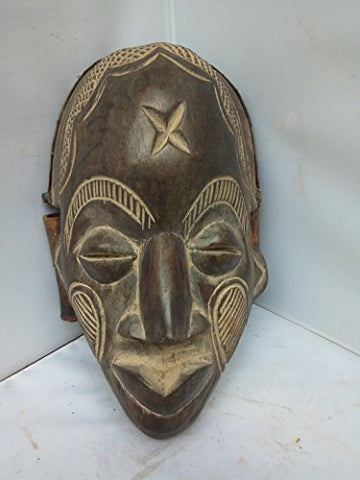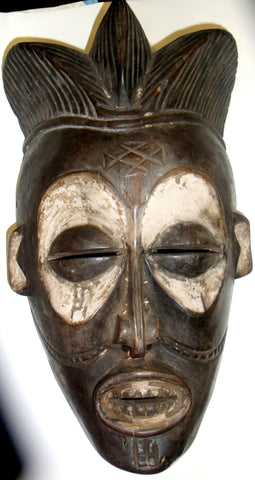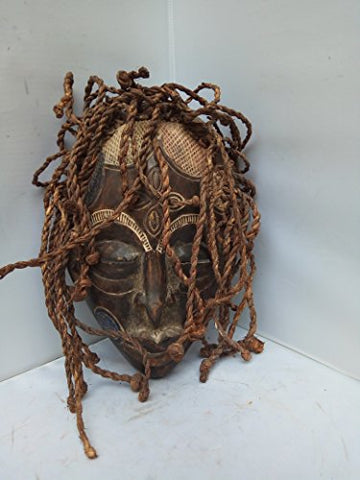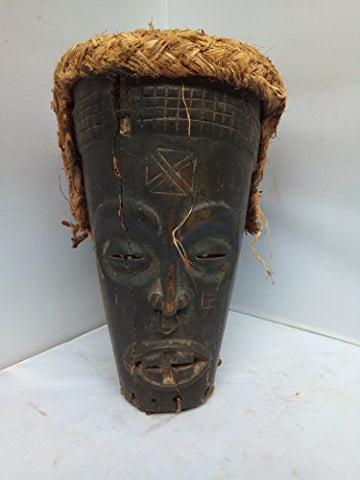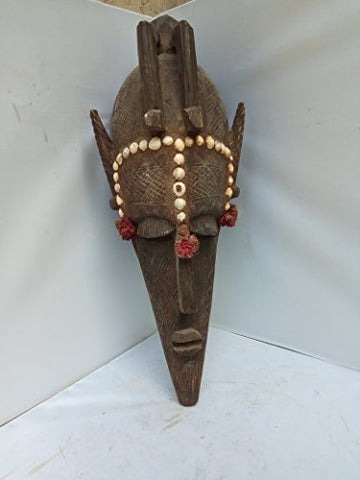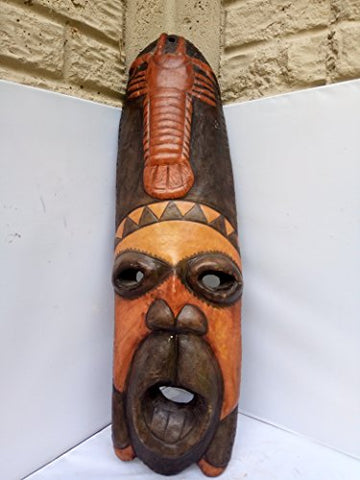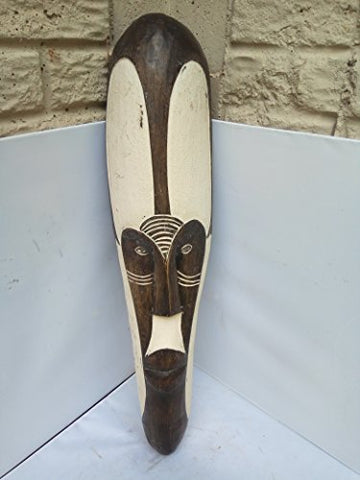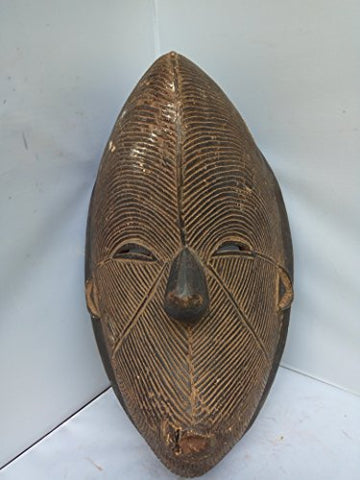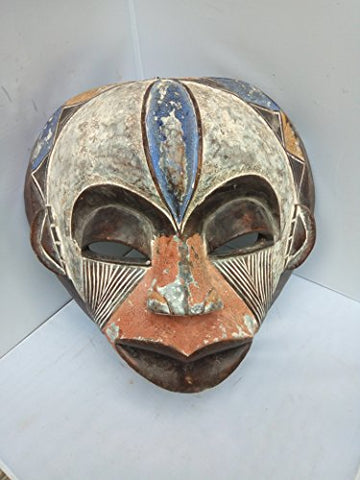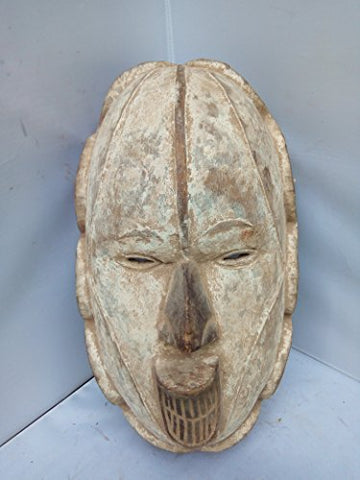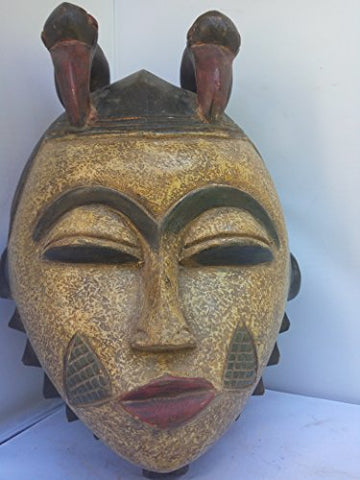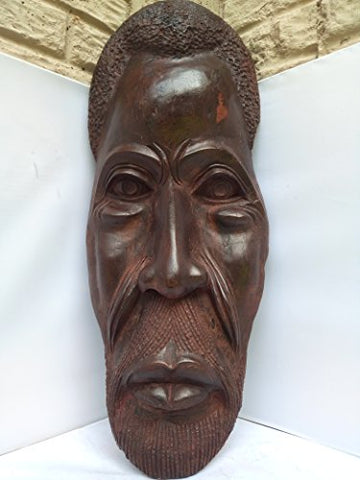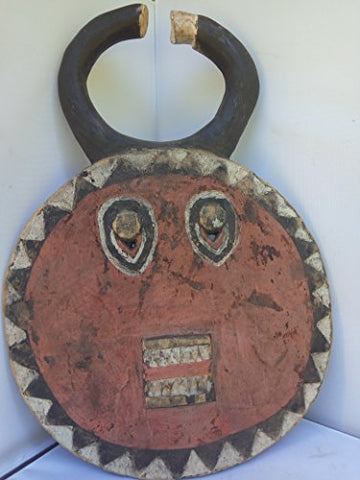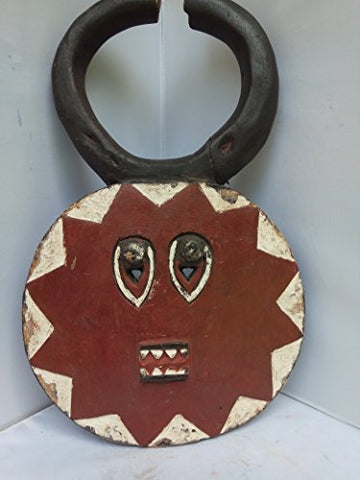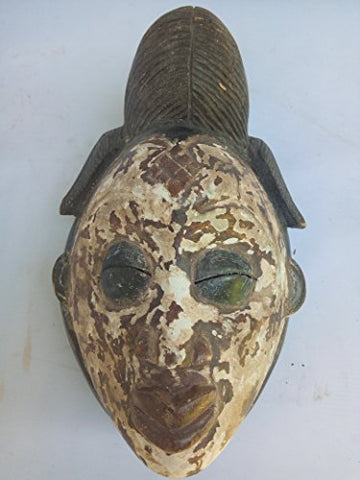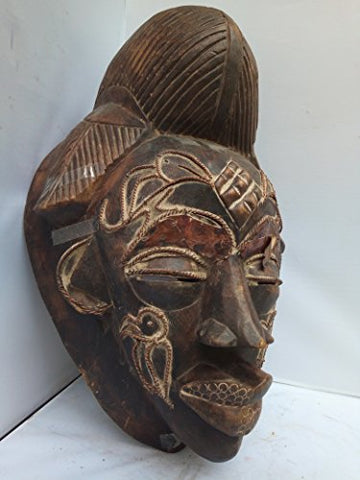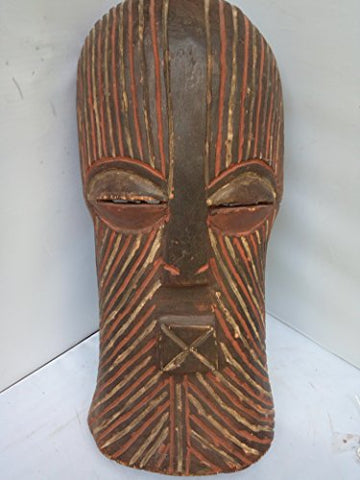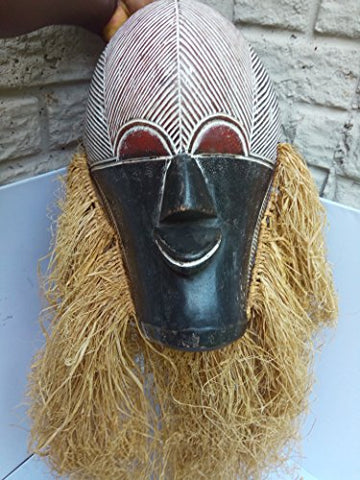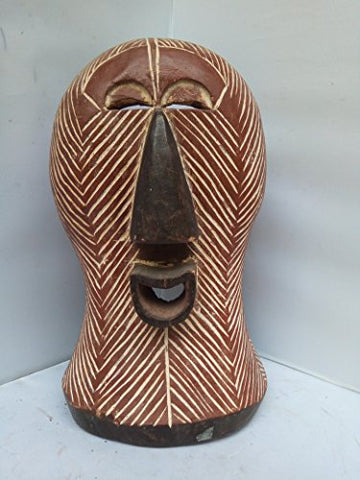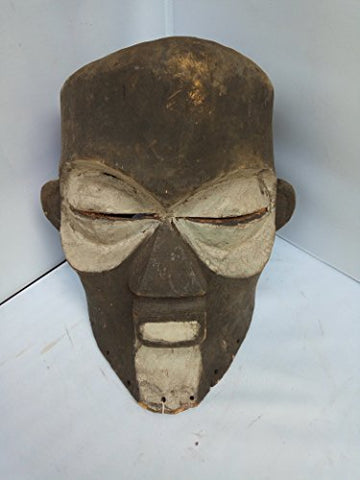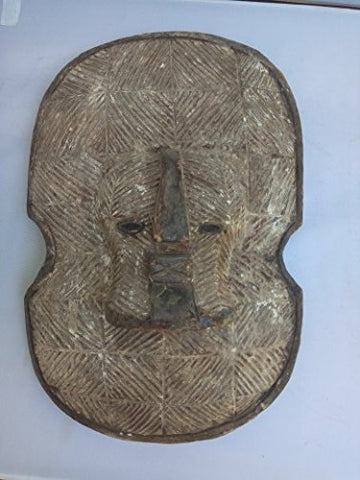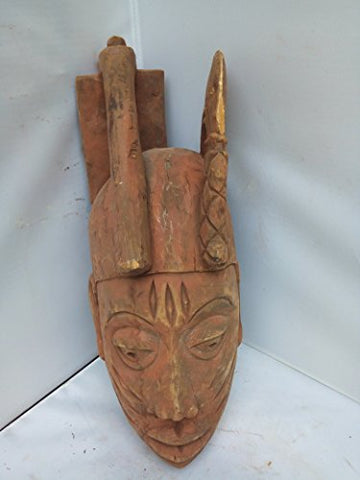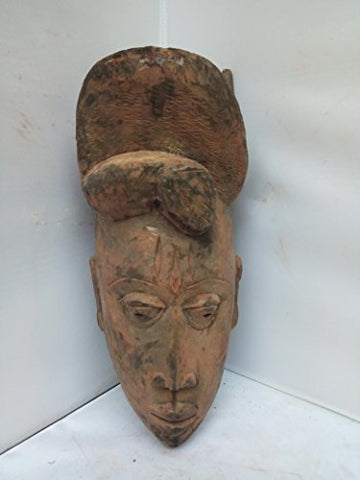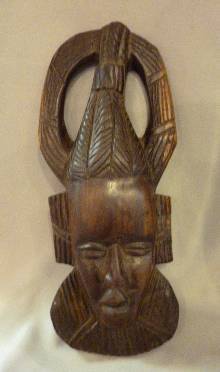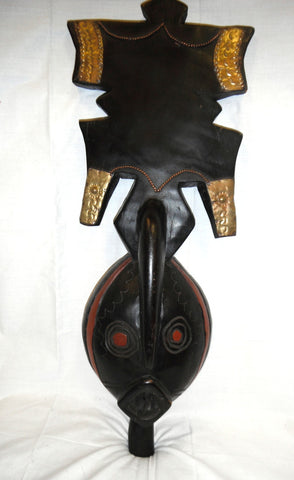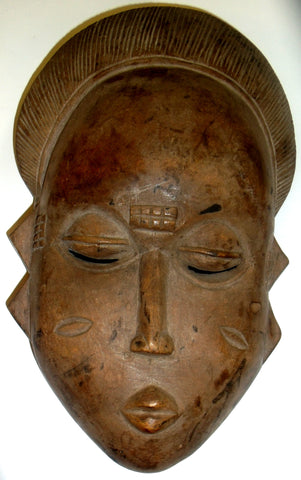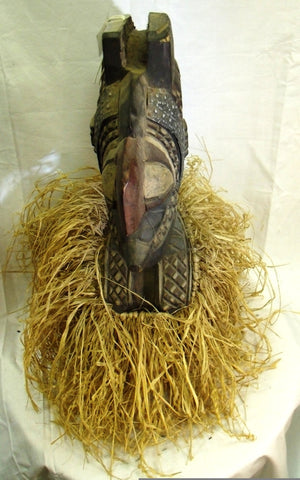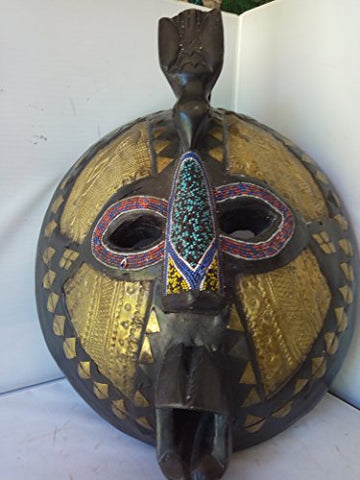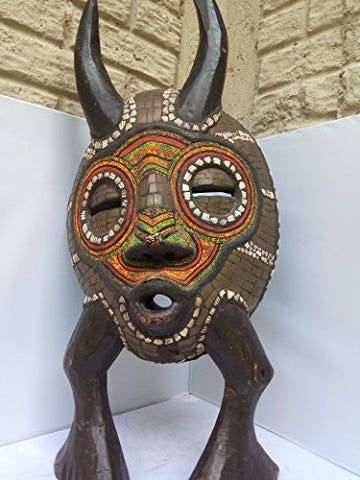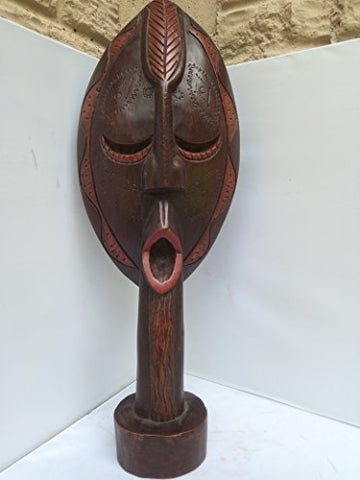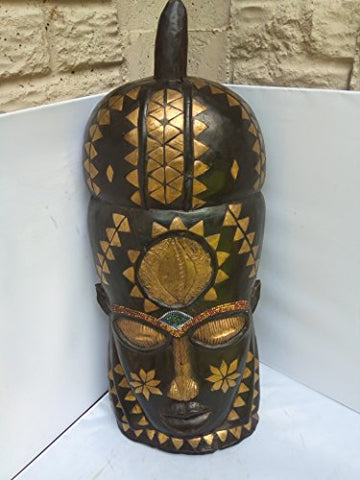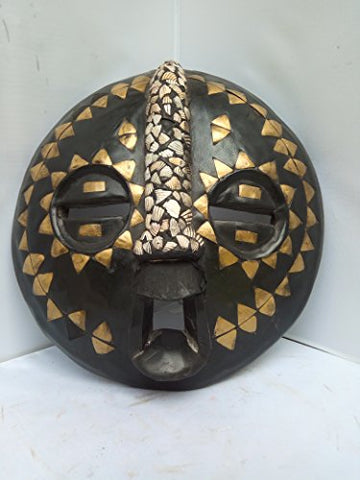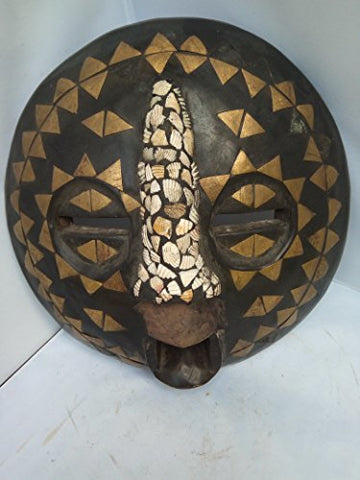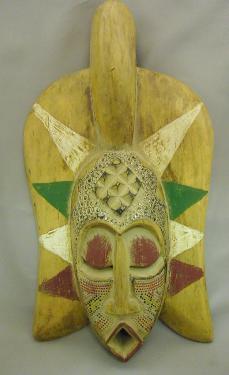Dodo " Bwa" Mask From Burkina Faso
BWA (BOBO-OULE, BOBO-ULE, BWABA, BWAMU) Burkina Faso and Mali Numbering 125,000 in Mali and 175,000 in Burkina Faso, the Bwa are divided in three endogamous castes: farmers, blacksmiths, and griots (bards and musicians). The Bwa are farmers who grow grain, especially millet, sorghum and maize. They have grown very large amounts of cotton since the colonial period, and the cultivating of this cash crop has contributed to the destruction of their traditional patterns of cooperative farming. Agriculture is practiced primarily by the men, women participating on certain occasions only. The blacksmiths forge tools and cast brass, and their wives make pottery. The blacksmith is also the village’s gravedigger and is responsible for digging wells. He is thus the man in contact with the soil; this indicates his importance, his role as mediator in disputes and as intermediary with the supernatural world. The griots weave and dye cotton. They play an important social role and are essential in public events. The Bwa have no centralized political organization and every village is directed by a council of the eldest men of the lineages. The spiritual life of the Bwa is based on worship devoted to Do and the founding ancestors of the clan. Do is at once an organization and an anthropomorphic being, the son of the creator god. Do represents the life-giving powers of nature, the forest and nourishing forces, sources of the life of plants and the fields, and intervenes at the time of agrarian rituals and funerals. Do is incarnated at initiations and village purifications, held just after crops are planted, by an otherworldly spirit masker whose “skin” is vines, grasses, and leaves. Deliberately non-human in shape, color, and behavior, the maskers celebrate life and help renew the forces of nature

